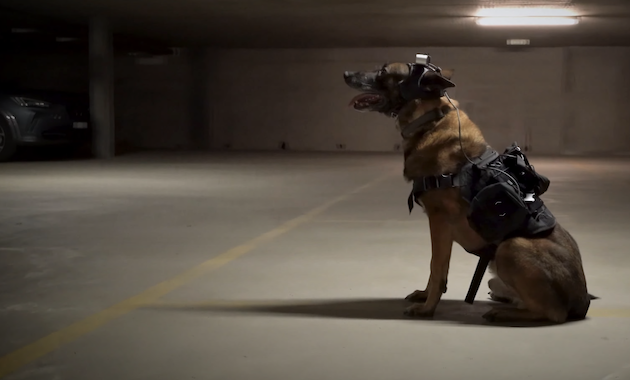
The ICARE Institute enhances canine law enforcement with advanced technologies
15 May 2023

The Valais-based ICARE Institute has pioneered digital transformation in law enforcement by integrating AI and SLAM technologies with police dog units.
In an era where digital transformation is becoming increasingly central to various industries, the ICARE institute (Institut CAntonal de REcherche) is pioneering innovative solutions in computer science, artificial intelligence, and big data management. Founded in 1991, the research institute has been instrumental in creating a vibrant ecosystem of innovation, fostering partnerships with academia, industry, and government. It continues to contribute significantly to the economic growth of the Sierre region, promoting the inception of innovative businesses in the canton of Valais.
One of the institute’s groundbreaking projects is the intersection of advanced technology and canine law enforcement. Police dogs are invaluable assets to law enforcement agencies, trained in the detection of firearms, drugs, and explosives, and assisting in locating missing persons or suspects. They are also integral to surveillance, protection, and special missions such as crowd control. ICARE is now enhancing these capabilities with the aid of cutting-edge technology.
Through a unique combination of technology and canine prowess, ICARE is equipping police dogs with custom 3D-printed helmets fitted with ZED stereoscopic cameras. These cameras communicate with a computing unit, based on the Jetson Nano, mounted on the dog’s harness, running SLAM (Simultaneous Localization and Mapping) and AI algorithms. The technology allows for the rapid transmission of information to the dog handler, facilitating faster, safer interventions.
Early results from controlled lab experiments indicate the feasibility of this technology-assisted approach. The dogs were able to perform their tasks unhindered while carrying the acquisition and computation equipment. The data from the 3D map was flattened into 2D, providing operators with an easily interpretable map, enhancing the visualization of the results obtained.
Despite the promising results, the ICARE team acknowledges that more research is needed to gauge the impact of this technology on a dog’s performance in real-life scenarios. There’s also potential in incorporating additional sensors to improve data accuracy.
A multidisciplinary approach to shape the future of digitization
ICARE’s commitment to research and digital transformation extends beyond this project. With a strong focus on future business needs, the institute is developing and implementing tomorrow’s IT technologies through complex research projects. Its multi-disciplinary teams, composed of top academics and industry professionals, are dedicated to turning research results into pragmatic solutions for businesses.
Digital transformation may pose significant challenges for SMEs, but the ICARE Institute has been successful in translating technology into tangible solutions, facilitating applied research projects to bring functional solutions to market. With a deep understanding of digital transformation’s complexities, ICARE is playing a crucial role in shaping the digital future.

